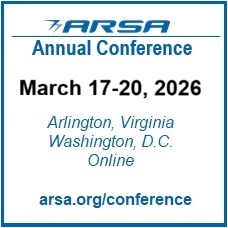Skilled Worker Shortage, Predatory OEM Practices, Over-Regulation Are Top Threats to Growing Maintenance Industry, ARSA Survey Finds
March 09, 2012
Thanks to the maintenance industry leaders who participated in our recent 2012 member survey. ARSA’s staff and Board of Directors will use the data to enhance programs and advocacy. Among the key survey findings:
- Respondents are optimistic about economic prospects in the coming year; 65 percent expect their business and markets to grow and 32 percent expecting no change in the level of economic activity. Only three percent expect business to diminish.
- Economic growth will translate into job creation; more than 60 percent of respondents plan to add workers and positions in 2012; only three percent are planning lay-offs or job cuts.
- Workforce development remains a challenge and become a bigger problem as hiring picks up. More than half of respondents (57 percent) had trouble in the past two years finding qualified workers for technical positions.
- On average, 41 percent of the technicians at companies responding to the survey were certificated by a civil aviation authority. The average starting hourly wage in U.S. dollars for entry-level technicians was $12.92; the median starting wage was $13.50.
- The biggest long-term threat to the aviation maintenance industry is over-regulation and government intrusion. Tied for second place were the FAA (inconsistent interpretation, understaffing, etc.), high fuel prices, and the skilled worker shortage.
- Predatory manufacturer practices are also a problem; seventy-two percent of respondents have seen an increase in restrictive covenants in contracts for maintenance data in the past two years.
- ARSA’s programs and activities received high marks (average scores above four on a five point scale), including working with FAA to improve the quality and consistency of regulations and oversight (4.35); providing regulatory compliance assistance to ARSA members (4.23); lobbying on Capitol Hill on issues that affect repair station markets and costs of doing business (4.20); and providing news about regulatory developments affecting repair stations (4.16).
- The biggest opportunities to grow ARSA’s value are improving repair station access to manufacturer maintenance manuals; expanding training program offerings (especially regulatory compliance and business law); and facilitating the sharing of best practices within the industry.
- ARSA publications are well read. Seventy-four percent of respondents read the hotline each month, with 41 percent reading it cover to cover. Sixty-three percent read ARSA’s Dispatch email newsletter each week, with 20 percent reading the entire publication.
- Respondents want ARSA to expand its preferred provider programs. Forty-seven percent said ARSA should consider providing group health insurance, 38 percent want discounted employee background checks, and 33 percent are interested in discounted drug and alcohol testing services.
The online survey was conducted from late January through mid-February. Multiple emails inviting participation were sent to our primary contact at all 443 repair station member companies. The survey system was configured to prevent multiple responses. Ninety-three ARSA members participated, giving the survey a nine percent margin of error and making it a reliable snapshot of ARSA’s membership.
~~~ posted 3/9/12 ~~~
More from ARSA
SMS Integration Webinar Series Continues in February
On Jan. 20, ARSA and the Aircraft Electronics Association presented the fourth of six planned webinars – a monthly series stretching into March – explaining effective integration of a safety…Read MoreARSA, AEA Offer Guidance to OpSpecs Working Group
On Jan. 9, ARSA and the Aircraft Electronics Association (AEA) offered resources to help improve FAA issuance of Operations Specifications paragraphs. The analysis was delivered in a letter to the…Read MoreARSA Pushes Congress to Guarantee FAA Funding
On Dec. 17, ARSA delivered a letter to the chairman and ranking member of the U.S. House of Representatives Committee on Transportation & Infrastructure (T&I) supporting the Aviation Funding Solvency…Read MoreSupport Simplifying New D&A Rules
December 22, 2025 | Categories:
Act Now, ARSA News & Updates, ARSA Works, Aviation Policy, Drug and Alcohol, EASA, FAA, Legislative, Operations, Press Releases, Regulatory, Rulemaking
Dec. 22, 2025 Update: ARSA is developing compliance matrices for tracking requirements of both 14 CFR part 120 and 49 CFR part 40 against international laws. The association is working…Read More







